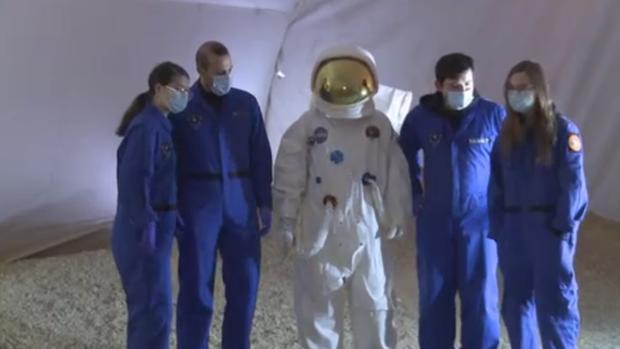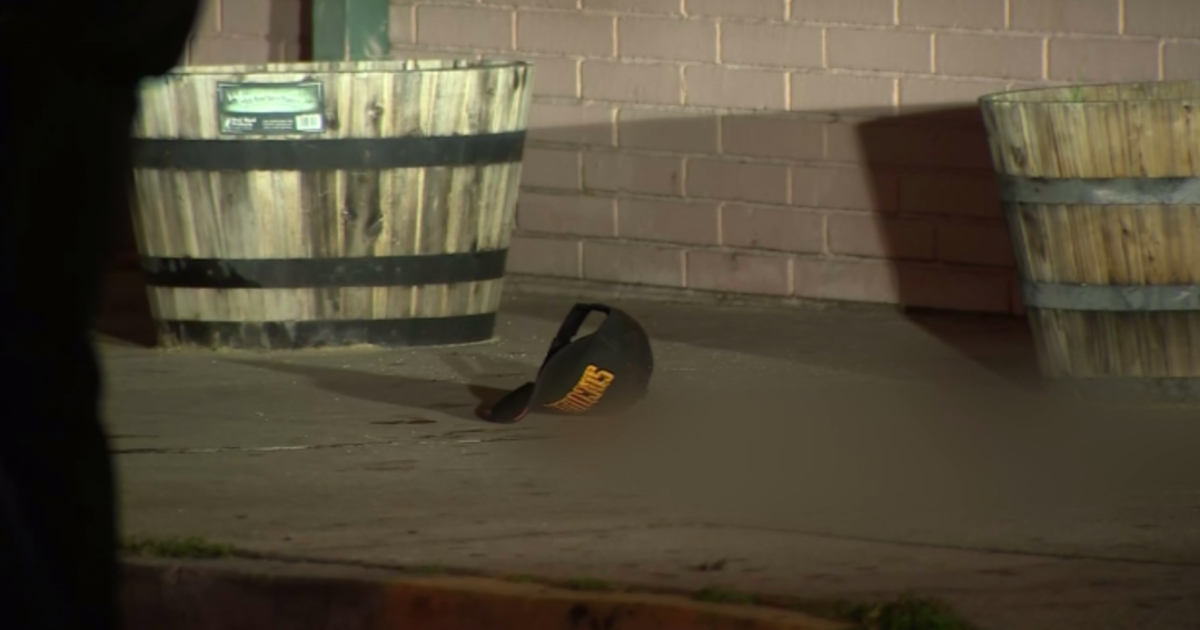'It Was Pretty Hard': Space Simulation Studies Effects Of Pandemic On Mental Health
LOS ANGELES (CBSLA) - A team of researchers have simulated life on the Moon to try and understand the impact of the pandemic's quarantines and social restrictions.
Five recruits spent two weeks in January cut off from the world at a simulated space base in Poland to test the impact of isolation on the human psyche.
The crew was locked inside Europe's unique LunAres Research Station near the city of Pila, built in 2017 by Space is More, a Polish company specializing in space technology.
"Before and after the mission our crews are going through MRIs, so we are trying to determine what are changes in their hippocampus, so that part of the brain that is partially responsible for spatial awareness and how that changes throughout those two weeks of isolation without any indication what is outside," says Leszek Orzechowski, architect and base manager of the space research habitat.
Totally isolated from the outside world, the base includes modules for daily activities, a lab and 2,700 square feet of space behind an airlock for walks on a simulated planetary surface, minus the zero gravity. The "spacewalk" area is inside a former anti-nuclear hangar that during the Communist era housed Su-22 bombers.
The base allows for the constant monitoring of the inhabitants' health and behavior. The crew was able to contact family and friends by text and email but had no access to video calls.
"No matter what happens with our relatives or outside world, we cannot react to it because we are locked," says Barbara Gornwald, a stomatologist from Pomeranian Medical University. "Like all the people who are in isolation, they cannot leave. We experienced the same, so it was pretty hard, at this point, but thanks to our great commander and the magnificent crew that I was here with, it was easier to go through it not alone."
Gornwald says the team have had "brain scans and saliva checks and also a lot of psychological assessment" to assess the impact of isolation on their physical and mental health.
The results of their experiments have not been released yet, but Orzechowski already has advice for those trying to navigate isolation during the pandemic.
"The boredom could be an issue, but that's why the schedule is a key to overcome it, yes. So if you're isolated, if you are suffering from quarantine, make a schedule. And if you put in that schedule things that you have to do and time for yourself, your free time, please plan it exactly as you've done it when you weren't isolated," he says.
The research was conducted under the guidance of the Polish Ministry of Health and Silesian University of Technology.




